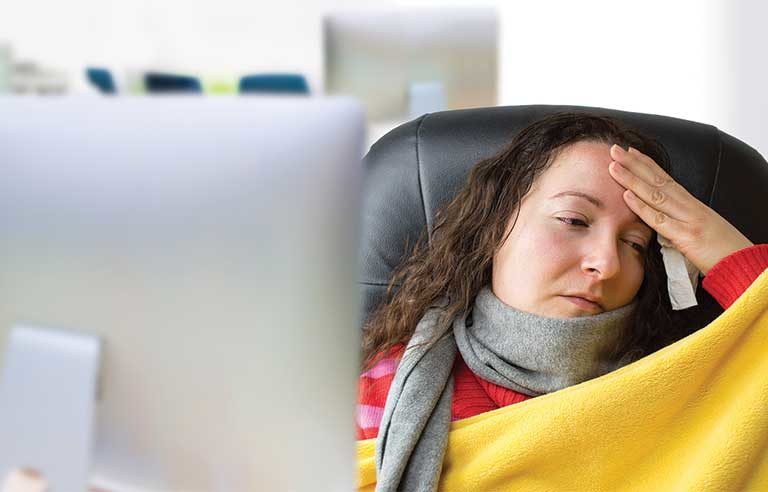Most Americans feel pressure to work when sick: survey

New York — Nearly 4 out of 5 Americans say they feel pressure to work when they don’t feel well, results of a recent survey show.
Researchers from OnePoll, on behalf of the cold medication company Robitussin, surveyed 2,000 U.S. adults – 1,930 of whom had jobs – about sickness in the workplace and dealing with sick co-workers.
Of the employed respondents, 78% reported “feeling pressure to power through the workday when they’re feeling under the weather,” a Nov. 7 press release states. However, 82% said they would be annoyed if a co-worker showed up with a cough, while 41% would rather take on the extra workload temporarily than have a co-worker come to work sick.
| Sign up for Safety+Health's free monthly email newsletters and get the news that's important to you. |
Other findings:
- 69% of workers believe having a bad cough isn’t a valid reason to stay home.
- 42% of workers feel stressed out when calling out sick.
- 1 out of 3 employees fear their boss would not consider having a bad cough a valid reason to stay home sick.
- If a co-worker starts coughing, 52% assume that person is sick.
Post a comment to this article
Safety+Health welcomes comments that promote respectful dialogue. Please stay on topic. Comments that contain personal attacks, profanity or abusive language – or those aggressively promoting products or services – will be removed. We reserve the right to determine which comments violate our comment policy. (Anonymous comments are welcome; merely skip the “name” field in the comment box. An email address is required but will not be included with your comment.)

